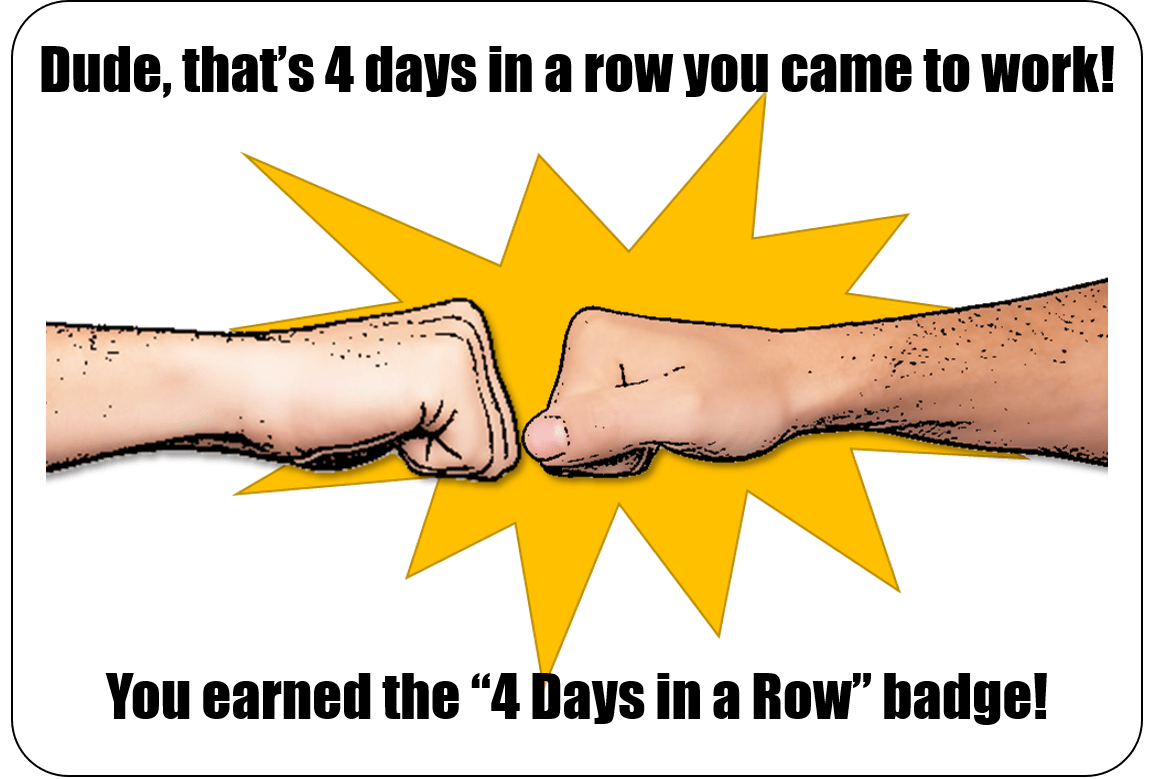When designing a reward system, it is easy to be tempted to reward everything!
- “Hey, you clicked on a button – woot”.
- “Awesome, you clicked that button twice, go you!”
- “OMG, you clicked that button 10 times now, you are the button king – have the button king badge!!!!!”
The trouble with this is it devalues rewards very quickly. I have written in depth about rewards and badges before, so won’t go into it here. What I want to put over in this short post, is the need to reward the right things and congratulate others.
Take my daughters school and a previously mentioned issue I have around them rewarding kids for attendance. 100% attendance = a reward of no homework for a week and a certificate. The issue here is the children being rewarded are 99% of the time not in control of their attendance. It is down to illness or parents taking them out of school for various reasons. It also highlights those who are unable to maintain 100% for reasons out of their control and could turn the class against them.





